Fleurs du Mal Magazine



C’est Lou Qu’on La Nommait
Il est des loups de toute sorte
Je connais le plus inhumain
Mon cœur que le diable l’emporte
Et qu’il le dépose à sa porte
N’est plus qu’un jouet dans sa main
Les loups jadis étaient fidèles
Comme sont les petits toutous
Et les soldats amants des belles
Galamment en souvenir d’elles
Ainsi que les loups étaient doux
Mais aujourd’hui les temps sont pires
Les loups sont tigres devenus
Et les Soldats et les Empires
Les Césars devenus Vampires
Sont aussi cruels que Vénus
J’en ai pris mon parti Rouveyre
Et monté sur mon grand cheval
Je vais bientôt partir en guerre
Sans pitié chaste et l’œil sévère
Comme ces guerriers qu’Epinal
Vendait Images populaires
Que Georgin gravait dans le bois
Où sont-ils ces beaux militaires
Soldats passés Où sont les guerres
Où sont les guerres d’autrefois
Guillaume Apollinaire
(1880 – 1918)
Poèmes à Lou
C’est Lou Qu’on La Nommait
fleursdumal.nl magazine
More in: Apollinaire, Guillaume, Archive A-B, Guillaume Apollinaire
Queer Shakespeare: Desire and Sexuality draws together 13 essays, which offer a major reassessment of the criticism of desire, body and sexuality in Shakespeare’s drama and poetry.
 Bringing together some of the most prominent critics working at the intersection of Shakespeare criticism and queer theory, this collection demonstrates the vibrancy of queer Shakespeare studies.
Bringing together some of the most prominent critics working at the intersection of Shakespeare criticism and queer theory, this collection demonstrates the vibrancy of queer Shakespeare studies.
Taken together, these essays explore embodiment, desire, sexuality and gender as key objects of analyses, producing concepts and ideas that draw critical energy from focused studies of time, language and nature.
The Afterword extends these inquiries by linking the Anthropocene and queer ecology with Shakespeare criticism.
Works from Shakespeare’s entire canon feature in essays which explore topics like glass, love, antitheatrical homophobia, size, narrative, sound, female same-sex desire and Petrarchism, weather, usury and sodomy, male femininity and male-to-female crossdressing, contagion, and antisocial procreation.
Queer Shakespeare
Desire and Sexuality
Editor(s): Goran Stanivukovic
Published: 13-07-2017
Format: Hardback
Edition: 1st
Extent: 424 pp
ISBN: 9781474295246
Imprint: The Arden Shakespeare
Dimensions: 198 x 129 mm
Bloomsbury Publishing
$144.00
Queer Shakespeare. Desire and Sexuality
fleursdumal.nl magazine
More in: - Book Lovers, - Book News, - Book Stories, Archive S-T, Archive S-T, Art & Literature News, AUDIO, CINEMA, RADIO & TV, LGBT+ (lhbt+), Shakespeare, William, THEATRE, TRAVESTY & POETRY
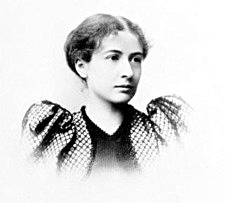
On The Train
I
The lady in front of me in the car,
With little red coils close over her ears,
Is talking with her friend;
And the circle of ostrich foam around her hat,
Curving over like a wave,
Trembles with her little windy words.
What she is saying, I wonder,
That her feathers should tremble
And the soft fur of her coat should slip down over her shoulders?
Has her string of pearls been stolen,
Or maybe her husband?
II
He is drunk, that man —
Drunk as a lord, a lord of the bibulous past. [sic]
He shouts wittily from his end of the car to the man in the corner;
He bows to me with chivalrous apologies.
He philosophizes, plays with the wisdom of the ages,
Flings off his rags,
Displays his naked soul —
Athletic, beautiful, grotesque.
In the good time coming,
When men drink no more,
Shall we ever see a nude soul dancing
Stript and free
In the temple of his god?
III
She comes smiling into the car
With irridescent bubbles of children.
She blooms in the close plush seats
Like a narcissus in a bowl of stones.
She croons to a baby in her lap —
The trees come swinging by to listen,
And the electric lights in the ceiling are stars.
Harriet Monroe poetry
(1860 – 1936)
On The Train
fleursdumal.nl magazine
More in: Archive M-N, Monroe, Harriet
Published for the first time in a beautiful collectible edition, the essential lecture delivered by the 2016 recipient of the Nobel Prize in Literature, Bob Dylan.
 On October 13, 2016, Bob Dylan was awarded the Nobel Prize in Literature, recognizing his countless contributions to music and letters over the last fifty years. Some months later, he delivered an acceptance lecture that is now memorialized in book form for generations to come.
On October 13, 2016, Bob Dylan was awarded the Nobel Prize in Literature, recognizing his countless contributions to music and letters over the last fifty years. Some months later, he delivered an acceptance lecture that is now memorialized in book form for generations to come.
In The Nobel Lecture, Dylan reflects on his life and experience with literature, providing both a rare artistic statement and an intimate look at a uniquely American icon.
From finding inspiration in the music of Buddy Holly and Leadbelly to the works of literature that helped shape his own approach to writing—The Odyssey, Moby-Dick, and All Quiet on the Western Front—this is Dylan like you’ve never seen him before.
Bob Dylan
The Nobel Lecture Hardcover
32 pages
Hardcover
October 31, 2017
Language: English
ISBN-10: 1501189409
ISBN-13: 978-1501189401
$10.73
Publisher: Simon & Schuster
fleursdumal.nl magazine
More in: - Book News, - Bookstores, Archive C-D, Art & Literature News, Awards & Prizes, Bob Dylan, Dylan, Bob
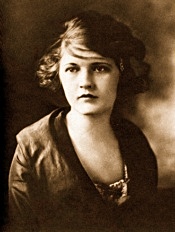 Regret
Regret
Mamzelle Aurelie possessed a good strong figure, ruddy cheeks, hair that was changing from brown to gray, and a determined eye. She wore a man’s hat about the farm, and an old blue army overcoat when it was cold, and sometimes top-boots.
Mamzelle Aurélie had never thought of marrying. She had never been in love. At the age of twenty she had received a proposal, which she had promptly declined, and at the age of fifty she had not yet lived to regret it.
So she was quite alone in the world, except for her dog Ponto, and the negroes who lived in her cabins and worked her crops, and the fowls, a few cows, a couple of mules, her gun (with which she shot chicken-hawks), and her religion.
One morning Mamzelle Aurélie stood upon her gallery, contemplating, with arms akimbo, a small band of very small children who, to all intents and purposes, might have fallen from the clouds, so unexpected and bewildering was their coming, and so unwelcome. They were the children of her nearest neighbor, Odile, who was not such a near neighbor, after all.
The young woman had appeared but five minutes before, accompanied by these four children. In her arms she carried little Élodie; she dragged Ti Nomme by an unwilling hand; while Marcéline and Marcélette followed with irresolute steps.
Her face was red and disfigured from tears and excitement. She had been summoned to a neighboring parish by the dangerous illness of her mother; her husband was away in Texas — it seemed to her a million miles away; and Valsin was waiting with the mule-cart to drive her to the station.
“It’s no question, Mamzelle Aurélie; you jus’ got to keep those youngsters fo’ me tell I come back. Dieu sait, I wouldn’ botha you with ’em if it was any otha way to do! Make ’em mine you, Mamzelle Aurélie; don’ spare ’em. Me, there, I’m half crazy between the chil’ren, an’ Léon not home, an’ maybe not even to fine po’ maman alive encore!” — a harrowing possibility which drove Odile to take a final hasty and convulsive leave of her disconsolate family.
She left them crowded into the narrow strip of shade on the porch of the long, low house; the white sunlight was beating in on the white old boards; some chickens were scratching in the grass at the foot of the steps, and one had boldly mounted, and was stepping heavily, solemnly, and aimlessly across the gallery. There was a pleasant odor of pinks in the air, and the sound of negroes’ laughter was coming across the flowering cotton-field.
Mamzelle Aurélie stood contemplating the children. She looked with a critical eye upon Marcéline, who had been left staggering beneath the weight of the chubby Élodie. She surveyed with the same calculating air Marcélette mingling her silent tears with the audible grief and rebellion of Ti Nomme. During those few contemplative moments she was collecting herself, determining upon a line of action which should be identical with a line of duty. She began by feeding them.
If Mamzelle Aurélie’s responsibilities might have begun and ended there, they could easily have been dismissed; for her larder was amply provided against an emergency of this nature. But little children are not little pigs: they require and demand attentions which were wholly unexpected by Mamzelle Aurélie, and which she was ill prepared to give.
She was, indeed, very inapt in her management of Odile’s children during the first few days. How could she know that Marcélette always wept when spoken to in a loud and commanding tone of voice? It was a peculiarity of Marcélette’s. She became acquainted with Ti Nomme’s passion for flowers only when he had plucked all the choicest gardenias and pinks for the apparent purpose of critically studying their botanical construction.
“‘T ain’t enough to tell ‘im, Mamzelle Aurélie,” Marcéline instructed her; “you got to tie ‘im in a chair. It’s w’at maman all time do w’en he’s bad: she tie ‘im in a chair.” The chair in which Mamzelle Aurélie tied Ti Nomme was roomy and comfortable, and he seized the opportunity to take a nap in it, the afternoon being warm.
At night, when she ordered them one and all to bed as she would have shooed the chickens into the hen-house, they stayed uncomprehending before her. What about the little white nightgowns that had to be taken from the pillow-slip in which they were brought over, and shaken by some strong hand till they snapped like ox-whips? What about the tub of water which had to be brought and set in the middle of the floor, in which the little tired, dusty, sun-browned feet had every one to be washed sweet and clean? And it made Marcéline and Marcélette laugh merrily — the idea that Mamzelle Aurélie should for a moment have believed that Ti Nomme could fall asleep without being told the story of Croque-mitaine or Loup-garou, or both; or that Élodie could fall asleep at all without being rocked and sung to.
“I tell you, Aunt Ruby,” Mamzelle Aurélie informed her cook in confidence; “me, I’d rather manage a dozen plantation’ than fo’ chil’ren. It’s terrassent! Bonté! don’t talk to me about chil’ren!”
“T ain’ ispected sich as you would know airy thing ’bout ’em, Mamzelle Aurélie. I see dat plainly yistiddy w’en I spy dat li’le chile playin’ wid yo’ baskit o’ keys. You don’ know dat makes chillun grow up hard-headed, to play wid keys? Des like it make ’em teeth hard to look in a lookin’-glass. Them’s the things you got to know in the raisin’ an’ manigement o’ chillun.”
Mamzelle Aurélie certainly did not pretend or aspire to such subtle and far-reaching knowledge on the subject as Aunt Ruby possessed, who had “raised five an’ buried six” in her day. She was glad enough to learn a few little mother-tricks to serve the moment’s need.
Ti Nomme’s sticky fingers compelled her to unearth white aprons that she had not worn for years, and she had to accustom herself to his moist kisses — the expressions of an affectionate and exuberant nature. She got down her sewing-basket, which she seldom used, from the top shelf of the armoire, and placed it within the ready and easy reach which torn slips and buttonless waists demanded. It took her some days to become accustomed to the laughing, the crying, the chattering that echoed through the house and around it all day long. And it was not the first or the second night that she could sleep comfortably with little Élodie’s hot, plump body pressed close against her, and the little one’s warm breath beating her cheek like the fanning of a bird’s wing.
But at the end of two weeks Mamzelle Aurélie had grown quite used to these things, and she no longer complained.
It was also at the end of two weeks that Mamzelle Aurélie, one evening, looking away toward the crib where the cattle were being fed, saw Valsin’s blue cart turning the bend of the road. Odile sat beside the mulatto, upright and alert. As they drew near, the young woman’s beaming face indicated that her home-coming was a happy one.
But this coming, unannounced and unexpected, threw Mamzelle Aurélie into a flutter that was almost agitation. The children had to be gathered. Where was Ti Nomme? Yonder in the shed, putting an edge on his knife at the grindstone. And Marcéline and Marcélette? Cutting and fashioning doll-rags in the corner of the gallery. As for Élodie, she was safe enough in Mamzelle Aurélie’s arms; and she had screamed with delight at sight of the familiar blue cart which was bringing her mother back to her.
The excitement was all over, and they were gone. How still it was when they were gone! Mamzelle Aurélie stood upon the gallery, looking and listening. She could no longer see the cart; the red sunset and the blue-gray twilight had together flung a purple mist across the fields and road that hid it from her view. She could no longer hear the wheezing and creaking of its wheels. But she could still faintly hear the shrill, glad voices of the children.
She turned into the house. There was much work awaiting her, for the children had left a sad disorder behind them; but she did not at once set about the task of righting it. Mamzelle Aurélie seated herself beside the table. She gave one slow glance through the room, into which the evening shadows were creeping and deepening around her solitary figure. She let her head fall down upon her bended arm, and began to cry. Oh, but she cried! Not softly, as women often do. She cried like a man, with sobs that seemed to tear her very soul. She did not notice Ponto licking her hand.
Kate Chopin (1850 – 1904)
Regret
fleursdumal.nl magazine
More in: Archive C-D, Chopin, Kate
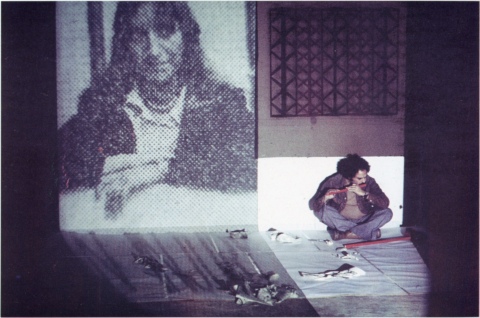
# Rasheed Araeen, Paki Bastard (Portrait of an Artist as a Black Person), 1977, courtesy the artist
The Van Abbemuseum will stage Rasheed Araeen: A Retrospective, the first comprehensive survey of the artist. The exhibition, spanning 60 years of work, presents a body of work that has had a profound influence on generations of artists, writers and thinkers.
Rasheed Araeen: A Retrospective is structured across five chapters: from his early experiments in painting in Karachi in the 1950s and early 60s, his pioneering minimalist sculptures carried out after his arrival in London in 1964, key pieces from the 70s and 80s following Araeen’s political awakening, his nine panel cruciform works from the 80s and 90s and a selection of his new geometric paintings and wall structures. Alongside this, material relating to Araeen’s writing, editorial and curatorial projects will be presented as part of an expanded artistic practice that in its scope and ambition continues to challenge the formal, ideological and political assumptions of Eurocentric modernism.
Publication:A monograph, edited by Nick Aikens and published by JRP Ringier in collaboration with Van Abbemuseum, MAMCO, BALTIC and Garage includes new essays by Aikens, Kate Fowle, Courtney Martin, Michael Newman, Gene Ray, Dominic Rhatz, John Roberts, Marcus du Sautoy, Zoe Sutherland and Kaelen Wilson-Goldie and an extensive conversation between Aikens and Araeen.
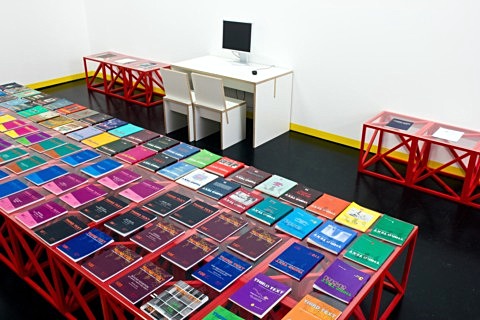
# Rasheed Araeen, The Reading Room, 2017, steel and glass tables, wooden stools, and copies of Third Text journal, courtesy the artist
Following the Van Abbemuseum Rasheed Araeen: A Retrospective will travel to MAMCO, Geneva, BALTIC Centre for Contemporary Art, Gateshead and Garage Centre for Contemporary Art, Moscow.
The exhibition is supported by Mondriaan Fund and Stichting Promotors van het Van Abbemuseum. The publication is generously supported by Aicon Gallery, New York, Grosvenor Gallery, London and Rossi Rossi, Hong Kong
exhibition
Rasheed Araeen
A Retrospective
02/12/2017 – 25/03/2018
spanning 60 years’ work
Curators: Nick Aikens
van abbemuseum eindhoven
# van abbemuseum eindhoven web
fleursdumal.nl magazine
More in: - Book News, Archive A-B, Art & Literature News, AUDIO, CINEMA, RADIO & TV, DICTIONARY OF IDEAS, Exhibition Archive, FDM Art Gallery, MONTAIGNE, Photography, Sculpture
A deeply personal, intimate conversation about music and writing between the internationally acclaimed, best-selling author and the former conductor of the Boston Symphony Orchestra.
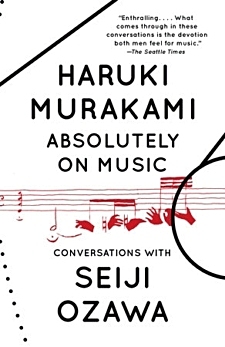 In Absolutely on Music, internationally Haruki Murakami sits down with his friend Seiji Ozawa, the revered former conductor of the Boston Symphony Orchestra, for a series of conversations on their shared passion: music.
In Absolutely on Music, internationally Haruki Murakami sits down with his friend Seiji Ozawa, the revered former conductor of the Boston Symphony Orchestra, for a series of conversations on their shared passion: music.
Over the course of two years, Murakami and Ozawa discuss everything from Brahms to Beethoven, from Leonard Bernstein to Glenn Gould, from Bartók to Mahler, and from pop-up orchestras to opera. They listen to and dissect recordings of some of their favorite performances, and Murakami questions Ozawa about his career conducting orchestras around the world. Culminating in Murakami’s ten-day visit to the banks of Lake Geneva to observe Ozawa’s retreat for young musicians, the book is interspersed with ruminations on record collecting, jazz clubs, orchestra halls, film scores, and much more. A deep reflection on the essential nature of both music and writing, Absolutely on Music is an unprecedented glimpse into the minds of two maestros.
Haruki Murakami is a best-selling Japanese writer. His works of fiction and non-fiction have garnered critical acclaim and numerous awards, including the Franz Kafka Prize, the Frank O’Connor International Short Story Award and the Jerusalem Prize, among others. Murakami’s fiction is humorous and surreal, focusing on themes of alienation and loneliness. He is considered an important figure in postmodern literature. The Guardian praised Murakami as “among the world’s greatest living novelists” for his works and achievements. Murakami is the author of 1Q84, The Wind-Up Bird Chronicles, Men Without Women and many more.
Seiji Ozawa served as music director of the Boston Symphony Orchestra for twenty-nine years, and was music director of the Toronto Symphony Orchestra, the San Francisco Symphony, the Chicago Symphony Orchestra’s Ravinia Festival, and Wiener Staatsoper. With Kazuyoshi Akiyama, he formed the Saito Kinen Orchestra and is the director of the Seiji Ozawa Matsumoto Festival. Ozawa has been deeply involved in musical education through his work with the Tanglewood Music Center Orchestra, the Ozawa International Chamber Music Academy Okushiga, the Seiji Ozawa International Academy Switzerland, and as founder of the Seiji Ozawa Music Academy Opera Project, organizations which provide opportunities to outstanding students in Asia and Europe. Among his many honors, Ozawa has been awarded France’s Officier de la Légion d’Honneur, the Japanese Order of Culture, a Kennedy Center Honor, and a Grammy for Best Opera Recording.
Absolutely on Music
Conversations
By Haruki Murakami and Seiji Ozawa
Translated by Jay Rubin
Part of Vintage International
Category: Music – Biography & Memoir
Penguin Random House
Paperback
October 2017
320 Pages
fleursdumal.nl magazine
More in: - Book News, - Book Stories, Archive M-N, Archive O-P, Art & Literature News, Haruki Murakami, MUSIC

Having no history
Having no history we are
What we do, not who
We have been—so there is no-one
Who is not with us.
Our time is not filled
With imperatives, but passes as it must—
Each year brings content
Of its own kind for us.
Our towns are each in the centre
Of nowhere, and each is its own.
We cannot feel life as apart,
And our days are belonging.
We do not have your ‘progress’—
But always try for betterment.
Untruth cannot flourish here,
Because what must be is.
We have never thought we can
Be other than this, we do not live
For what should be, can be,
As what is is plain in view.
John Leonard
John Leonard lives in Canberra, Australia.
More poetry on website: www.jleonard.net
fleursdumal.nl magazine
More in: Archive K-L, Leonard, John
Wie Elsschot zegt, denkt niet meteen aan poëzie. Toch zijn het juist enkele van zijn dichtregels die iedereen zal herkennen: ‘tussen droom en daad staan wetten in de weg en praktische bezwaren’, bijvoorbeeld. Willem Elsschot. Dichter bevat alle gedichten uit Elsschots enige bundel.
 Een select gezelschap van vijfentwintig scherpzinnige lezers geeft er commentaar bij, aangevoerd door Elsschotkenner Koen Rymenants en poëzie-expert Carl de Strycker. Ze verhelderen Elsschots proza met behulp van zijn poëzie en omgekeerd. Ze tonen ons Elsschot als gelegenheidsdichter en -vertaler en brengen onvermoede verwantschappen aan het licht: met Guido Gezelle en de gezusters Loveling, de Bijbel en Victor Hugo, maar ook met Herman de Coninck en Kees van Kooten.
Een select gezelschap van vijfentwintig scherpzinnige lezers geeft er commentaar bij, aangevoerd door Elsschotkenner Koen Rymenants en poëzie-expert Carl de Strycker. Ze verhelderen Elsschots proza met behulp van zijn poëzie en omgekeerd. Ze tonen ons Elsschot als gelegenheidsdichter en -vertaler en brengen onvermoede verwantschappen aan het licht: met Guido Gezelle en de gezusters Loveling, de Bijbel en Victor Hugo, maar ook met Herman de Coninck en Kees van Kooten.
Koen Rymenants (1977) promoveerde op een proefschrift over Elsschot: Een hoopje vuil in de feestzaal. Facetten van het proza van Willem Elsschot (2009). Hij publiceert over literatuur en is bestuurslid van het Willem Elsschot Genootschap.
Carl de Strycker (1981) is directeur van Poëziecentrum en hoofdredacteur van Poëziekrant. Met Yra van Dijk en Maarten De Pourcq stelde hij het boek Draden in het donker. Intertekstualiteit in theorie en praktijk (2013) samen.
Willem Elsschot. Dichter
Koen Rymenants, Carl De Strycker
Paperback
ISBN 978-94-6310-290-2
€ 22,50
Paperback
Formaat 140 x 215
Aantal pagina’s 304
Publicatiedatum 5 okt. 2017
Uitg. Polis Antwerpen
fleursdumal.nl magazine
More in: - Book News, - Book Stories, Archive E-F, Archive E-F, Art & Literature News, Willem Elsschot
De nieuwe roman van grootmeester Mario Vargas Llosa, de Nobelprijswinnaar op zijn best
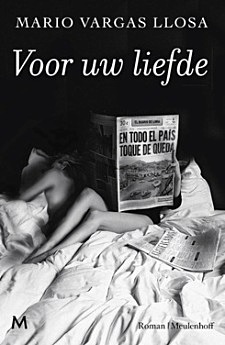 Spanning, humor en erotiek strijden om voorrang in dit weergaloze verhaal over de Peruviaanse bovenklasse
Spanning, humor en erotiek strijden om voorrang in dit weergaloze verhaal over de Peruviaanse bovenklasse
Enrique Cárdenas, een rijke zakenman, wordt door de befaamde redacteur van een boulevardblad afgeperst. Als hij diens eisen niet inwilligt worden er foto’s gepubliceerd van Cárdenas die zich tijdens een orgie verlustigt aan prostituees en drugs. Dit schandaal zou zijn ondergang betekenen.
Cárdenas’ situatie wordt nog nijpender als hij wordt beschuldigd van een moord die gepleegd werd in Cinco Esquinas, een van de armste wijken van Lima. In heel Peru is er slechts een vrouw die de echte dader kan vinden: een cynische journaliste met twijfelachtige moraal, die haar carrière heeft gewijd aan het verwoesten van de reputaties van de tegenstanders van Fujimori’s regering. Nu krijgt ze de kans om haar vak eer aan te doen door de waarheid aan het licht te brengen.
Deze nieuwe, spannende roman van Mario Vargas Llosa schildert een levendig portret van de Peruviaanse samenleving tijdens de jaren van de Fujimori-dictatuur en schetst een ontluisterend beeld van de dubbele moraal van de journalistiek. Verluchtigd met een vleugje humor en erotiek leest Voor uw liefde als een ware pageturner.
‘Alles is meesterlijk in deze roman. De ervaren Vargas Llosa blaast ons wederom omver met zijn venijnige wijsheid en zijn onuitputtelijke creativiteit.’ El País
Mario Vargas Llosa (Peru, 1936) is een van de belangrijkste Zuid-Amerikaanse schrijvers van deze tijd. Zijn romans staan bekend om hun politieke en gewelddadige sfeer en hun aandacht voor het morele verval van de maatschappij. Via kranten mengt Vargas Llosa zich geregeld in het maatschappelijk debat en in 1987 was hij kandidaat voor het presidentschap in Peru. In 2010 werd Mario Vargas Llosa bekroond met de Nobelprijs voor de Literatuur.
Mario Vargas Llosa
Voor uw liefde
Gebonden met stofomslag
Vertaling: Arie van der Wal
Publ. datum: 10-10-2017
Pagina’s: 240
ISBN: 9789029092050
Uitgever J.M. Meulenhoff
Taal Nederlands
Genre Literaire fictie
Mario Vargas Llosa: Voor uw liefde
fleursdumal.nl magazine
More in: - Book News, - Bookstores, Archive M-N, Art & Literature News, Mario Vargas Llosa
A hardcover omnibus edition of the French writer’s most famous novel alongside her fascinating wartime writings and a collection of searingly honest and intimate autobiographical essays.
 Marguerite Duras was one of the leading intellectuals and novelists of post-war France, but her wartime writings were not published in full until after her death. The Wartime Notebooks trace Duras’s formative experiences–including her difficult childhood in Indochina and her harrowing wait for her husband’s return from Nazi internment–revealing the personal history behind her bestselling novels.
Marguerite Duras was one of the leading intellectuals and novelists of post-war France, but her wartime writings were not published in full until after her death. The Wartime Notebooks trace Duras’s formative experiences–including her difficult childhood in Indochina and her harrowing wait for her husband’s return from Nazi internment–revealing the personal history behind her bestselling novels.
The Lover is the best known of these; set in prewar Indochina, its haunting tale of a tumultuous affair between an adolescent French girl and her wealthy Chinese lover is based on her own life. In spare and luminous prose, Duras evokes life on the margins in the waning days of France’s colonial empire, and the passionate relationship between two unforgettable outcasts.
Practicalities is a collection of small and intensely personal pieces Duras dictated near the end of her life. These deceptively simple meditations on motherhood, domesticity, sex, love, alcohol, writing, and more are witty, earthy, outspoken, and surprisingly fresh and relevant today.
Marguerite Duras is the author of many acclaimed novels and screenplays, including The Lover, The Ravishing of Lol Stein, and the film script for Hiroshima, Mon Amour. One of France’s most important literary figures, Duras died in Paris in 1996.
The Lover, Wartime Notebooks, Practicalities
By Marguerite Duras
Introduction by Rachel Kushner
Part of Everyman’s Library Contemporary Classics Series
Category: Historical- Literary- Fiction
Hardcover,
Nov 14, 2017,
504 Pages
fleursdumal.nl magazine
More in: - Book News, - Bookstores, Archive C-D, Art & Literature News, Marguerite Duras
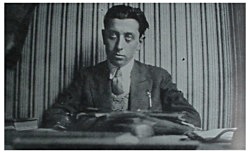
Que voulez-vous que je vous dise ?
À Théodore Fraenkel
C’est la pure vérité
Comme un manchon
Ma belle dame mettez vos deux mains
dans le bec de gaz
nous y verrons plus clair
Vous êtes perdue si vous ne m’égratignez
pas un peu
pour voir
plus clair
Un bateau s’arrête et fait son
testament
Les champs de blé réclament longuement la coiffure à la frégate.
Le mystérieux concierge enfonce
avec précaution sa clef dans ton œil
après vingt ans on est prié de dire son nom
mais la postérité n’exige pas de carte d’identité
à vos souhaits
Les miens sont simples
me donne à boire durant toute la mort
qu’on me fiche la guerre.
Robert Desnos (1900 – 1945)
Que voulez-vous que je vous dise ?
À Théodore Fraenkel
fleursdumal.nl magazine
More in: Archive C-D, Desnos, Robert, SURREALISM
Thank you for reading Fleurs du Mal - magazine for art & literature